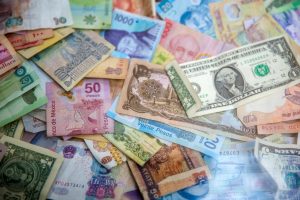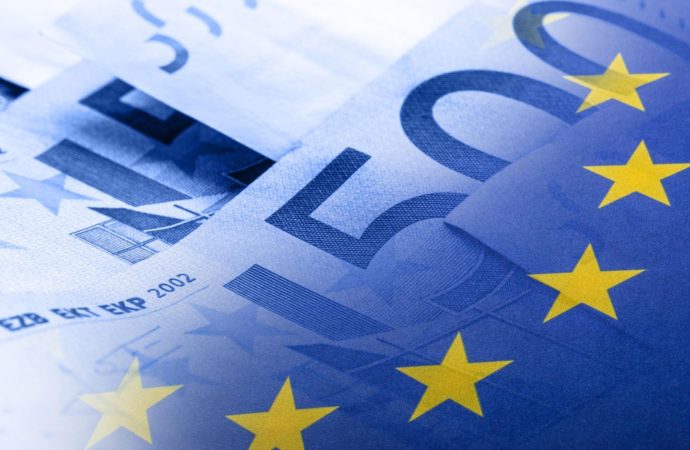In recent years, European companies have been reevaluating their relationship with China amidst geopolitical tensions, trade uncertainties, and shifts in global supply chains. This article delves into the motivations behind European companies’ efforts to decouple from China, exploring the strategies they are employing and the implications of this shift. Motivations for Decoupling Geopolitical Uncertainties: Rising
In recent years, European companies have been reevaluating their relationship with China amidst geopolitical tensions, trade uncertainties, and shifts in global supply chains. This article delves into the motivations behind European companies’ efforts to decouple from China, exploring the strategies they are employing and the implications of this shift.
Motivations for Decoupling

Photo by Jason Leung on Unsplash
- Geopolitical Uncertainties: Rising tensions between China and the West, particularly the European Union, have fueled concerns about overdependence on China for trade and investment. European companies are increasingly wary of being caught in the crossfire of geopolitical disputes, prompting them to diversify their operations.
- Supply Chain Resilience: The COVID-19 pandemic exposed vulnerabilities in global supply chains, prompting companies to reassess their reliance on distant manufacturing hubs like China. European companies are seeking to shorten their supply chains and localize production to ensure greater resilience in the face of future disruptions.
- Intellectual Property Protection: European companies have long grappled with intellectual property concerns in China, where lax enforcement of IP rights poses risks of theft and infringement. By decoupling from China, these companies aim to safeguard their proprietary technologies and innovations.
Strategies for Decoupling
- Diversification of Suppliers: European companies are diversifying their supplier base to reduce dependence on Chinese suppliers. They are exploring alternative sourcing destinations within Europe, Asia, and other regions to mitigate risks associated with concentrated supply chains.
- Reshoring and Nearshoring: Some European companies are reshoring or nearshoring production to bring manufacturing closer to home. This trend is driven by a desire to reduce lead times, transportation costs, and exposure to geopolitical risks associated with distant production sites.
- Investment in Automation: To offset higher labor costs associated with reshoring or nearshoring, European companies are investing in automation and advanced manufacturing technologies. Automation enhances productivity, reduces reliance on labor-intensive processes, and enables greater flexibility in production.
Implications of Decoupling
- Economic Disruptions: Decoupling from China could lead to short-term disruptions as European companies navigate the complexities of restructuring their supply chains. However, in the long run, it may enhance Europe’s economic resilience by reducing reliance on a single trading partner.
- Trade Relations: The decoupling trend has implications for EU-China trade relations, potentially straining diplomatic ties and complicating negotiations on trade agreements and investment treaties.
- Innovation and Competitiveness: By protecting intellectual property and investing in innovation, European companies can bolster their long-term competitiveness in global markets. Decoupling from China may spur innovation and drive technological advancements in key industries.
Analysis Table
| Motivation | Implication |
|---|---|
| Geopolitical Uncertainties | Potential strain on EU-China relations |
| Supply Chain Resilience | Enhanced economic resilience and risk mitigation |
| Intellectual Property Protection | Safeguarding proprietary technologies and innovations |
Comparative Table
| Strategy | Description | Example |
|---|---|---|
| Diversification of Suppliers | Seeking alternative sourcing destinations to reduce dependence on China | German automakers exploring suppliers in Southeast Asia |
| Reshoring and Nearshoring | Bringing production closer to home to reduce lead times and transportation costs | French textile manufacturer relocating production to Poland |
| Investment in Automation | Adopting advanced manufacturing technologies to offset higher labor costs | Swedish electronics company investing in robotic assembly |
Conclusion
European companies’ efforts to decouple from China represent a strategic response to geopolitical uncertainties, supply chain vulnerabilities, and intellectual property concerns. By diversifying suppliers, reshoring production, and investing in innovation, these companies aim to enhance their resilience and competitiveness in an increasingly complex global landscape. However, the implications of decoupling extend beyond economic considerations, shaping trade relations and diplomatic dynamics between the EU and China. As European companies continue to navigate this transition, careful strategic planning and adaptation will be crucial to mitigating risks and seizing new opportunities in a post-decoupling world.
















